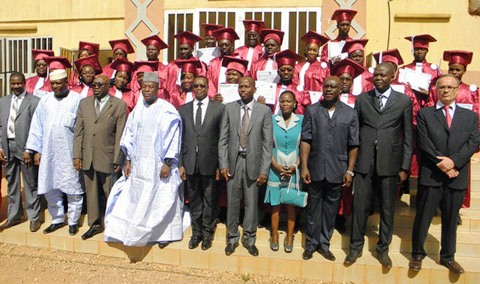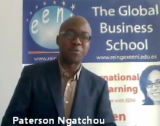Philosophy of studies
Philosophy of studies (Courses, Doctorate, and Masters in International Business)
Study Methodology - EENI Global Business School.
An e-learning educational programme (Course, Master, Doctorate) can be focused on many forms. In our case, the philosophy is that the student acts from the first day, as if he/she was the Export Director of a company.
Like this; he/she is conscious that he is acting in a highly competitive global market.
An export Director does not take a passive part but adopts an active and dynamic role.
This is the philosophy that the students must take to study with us; the objective is to give a leading role to the student.
This new approach hopes to cause the student, to play an active role, convert him to an “intellectual partner,” mobilizing his energy, experiences, and creativity using the forum debates, analysis, and resolution of business cases, confrontation of opposed perceptions, or presentation of discrepant experiences.
The student must accept this challenge; he must not think that their professors will pursue him to see if he has finished the exercises or has any questions. The student must lead this process, if he needs the professors; they always will be available, but, as in the real world of International Business; he cannot expect the professors to prompt him.
Our experience shows that this working principle is the most adequate for the Online International Business education, and conforms to the international educations ideas according to the European Higher Education Space. The objective is to develop the efficiency of abilities. From this, the idea is that, self-learning, which gives a great importance to the study based on the personal effort.
To facilitate the labour mobility, the studies will be compared according to the difficulty. For that reason, the comparative unit of measurement used is the European Credit (ECTS). Thus, our emphasis to develops this type of study.

The student must not think that he will learn by “just being there.” He must make an effort, just as one would with a traditional course, as well as completing the exercises. These are fundamental in our model of continuous evaluation. As far as possible we recommend that the students adapt the exercises to their company (if he were working in one) as well as adapting the exercises to the country of the student.
It is also necessary to reflect upon the environment in which we will move: we are working in a digital environment, very different from our traditional environment. This “Intercultural distance” and the digital environment sometimes complicate the communications. We must always consider these two characteristics, and before any doubt or misunderstanding the best and the most efficient thing to do is to discuss it.

As we have already mentioned previously, this methodology seeks to develop the abilities. It is proven that companies not only look for people capable of Leadership qualities but also with abilities such as competent communication, well organized and disciplined in the working environment, sense of responsibility, good ethical behavior, enterprising disposition, or contribution of ideas when solving a problem (creativity).
The results are clear: the students who have finished our programs (Courses, Masters, Doctorate), in general, have improved their work prospects, either ascending in the company or finding a better position in another company.


EENI Partnerships with Educational Institutions
(c) EENI Global Business School (1995-2024)
We do not use cookies
Top of this page





